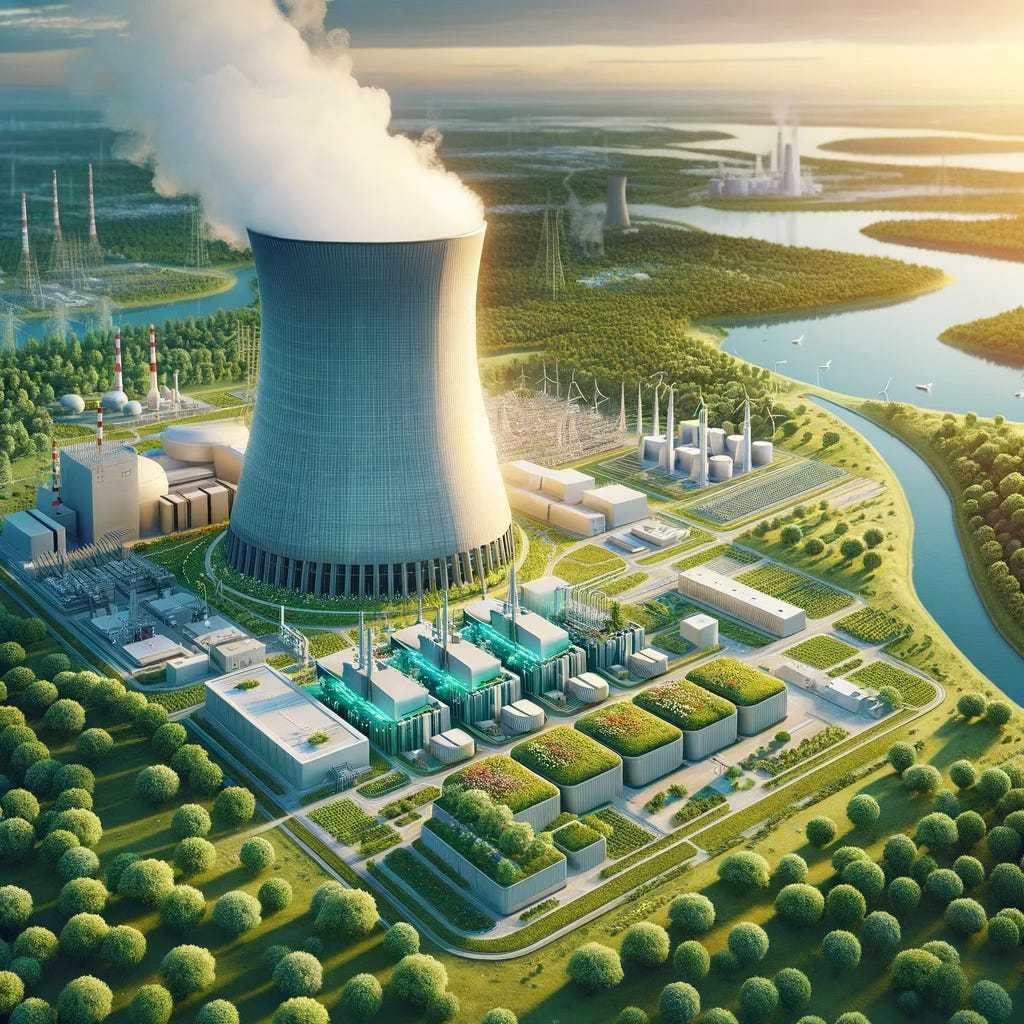The Keystone of America's Clean Energy Revolution
In envisioning a sustainable energy future for the United States, the spotlight increasingly focuses on nuclear power as the linchpin of environmental and economic sustainability. This perspective is underpinned by robust scientific data and practical insights that highlight nuclear energy's indispensable role in achieving long-term sustainability goals. Unlike other energy sources, which come with their sets of challenges, nuclear power stands out for its efficiency, reliability, and minimal environmental impact, making it a singular choice for the future.
The core of nuclear energy's appeal lies in its unparalleled energy density. It has the capability to generate vast amounts of electricity from a relatively small amount of fuel, consistently, and independent of external conditions like weather. This remarkable efficiency ensures nuclear power's unmatched reliability, providing a steady base load support for the national grid with significantly less land use and without the environmental disruptions associated with some renewable energy sources.
Moreover, nuclear power is among the cleanest forms of energy in terms of carbon emissions. The Intergovernmental Panel on Climate Change (IPCC) reports that nuclear energy's lifecycle carbon dioxide emissions are comparable to wind and much lower than those of solar power. This positions nuclear energy as a powerful ally in the global fight against climate change, capable of significantly reducing greenhouse gas emissions within the energy sector.
The evolution of nuclear technology underscores the sector's commitment to safety and efficiency. Innovations such as Small Modular Reactors (SMRs) have revolutionized nuclear safety, offering designs that inherently limit the risk of accidents. These reactors employ passive safety systems, relying on natural physical principles to manage heat and maintain safety autonomously, without the need for external power or human intervention.
Historical apprehensions towards nuclear power, fueled by incidents at Chernobyl, Three Mile Island, and Fukushima, have been addressed through a global overhaul in nuclear safety standards and technologies. The lessons learned from these events have been instrumental in developing sophisticated safety protocols and technologies, significantly reducing the risk of future catastrophes. The nuclear industry's rigorous regulatory standards and the deployment of cutting-edge technology for accident prevention highlight a profound commitment to safety.
Economically, nuclear energy offers considerable advantages, including job creation in plant construction and operation, and the potential for the United States to lead in global nuclear technology. The development and exportation of nuclear expertise represent an opportunity for significant economic growth and leadership in clean energy technology.
Addressing nuclear waste management is critical in the discourse on nuclear energy. Advancements in waste management strategies and recycling technologies are essential in minimizing the environmental impact of nuclear power. Furthermore, public engagement and education are paramount in shifting perceptions and building trust in nuclear energy as a safe, sustainable energy source.
In conclusion, while renewable energy sources play a vital role in the transition to a sustainable energy mix, nuclear power is uniquely positioned to address the twin challenges of energy security and climate change. Its remarkable energy density, low carbon footprint, safety advancements, and economic benefits underscore its role as the foundation of a sustainable energy future for the United States. Through continued innovation, stringent safety measures, and transparent communication, nuclear power stands as a testament to the possibility of a cleaner, more sustainable future.




